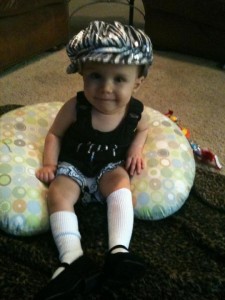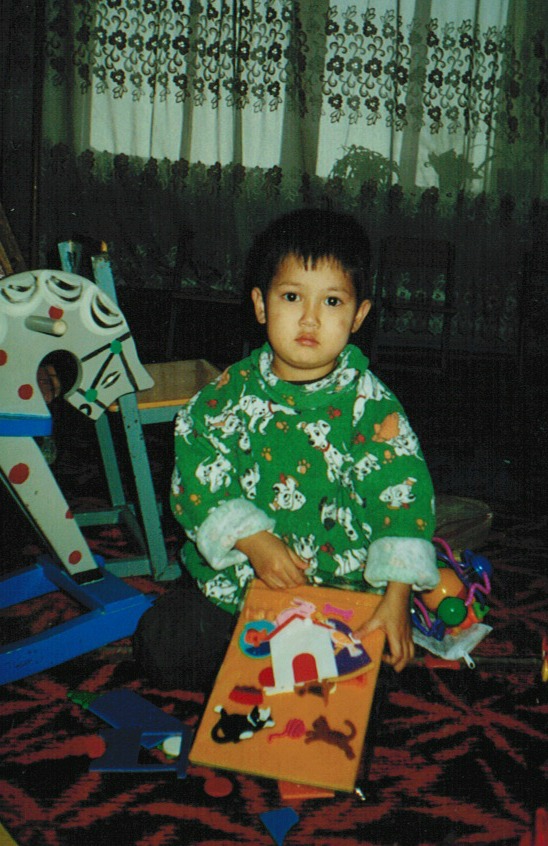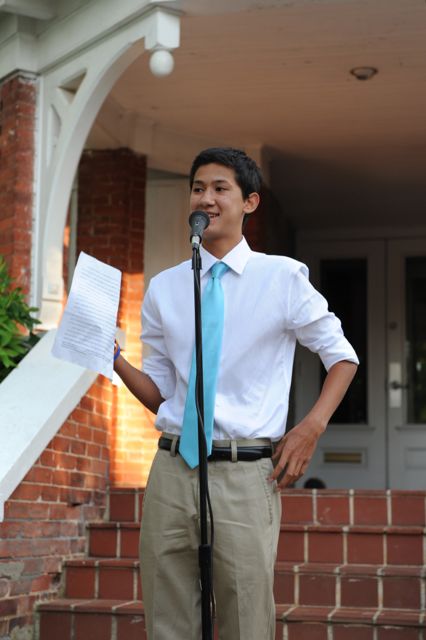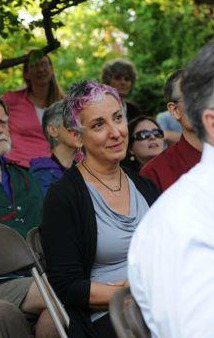I will be forty-eight this summer. Which means if I live to be one-hundred (which is an actual goal) I am squarely and undeniably smack dab in the middle of my life.

Midlife is a spiritual adventure -- and I LOVE IT!
Middle age has its petty annoyances. It also has its perks. I may not be able to see the dosage information on the side of a Motrin bottle, but I can see my fellow travelers with compassion. I may have gained weight in my midsection, but I feel lighter in my heart. I may not remember where I put my keys, but I remember that I was put on this earth to love. I may not be able to connect a name with a face, but I can connect a face with a soul.
In short: What I lose in collagen, I gain in wisdom. Which – when it comes right down to it – is not a bad tradeoff. Not at all.
There are spiritual lessons that mid-life offers: cosmic jokes which, if turned the right way and examined in proper light, can become cosmic ah-ha’s. Here are a handful spiritual lessons I have learned in (and from) middle age:
Take time to find the right words: Words are sneaky little critters. Trying to find the right word in my middle aged brain can be like like trying to find my cat when it’s time to go to the vet: they dash out of reach just when I need them. Sometimes, I actually have to close my eyes to visualize what I am trying to say before I say it. The other day I told my son he “viewed the world incisively”. The word I was looking for, in retrospect, was “observant”. I actually like the former version better than the latter. An added benefit is that I am teaching other people to be patient while they wait for me to say what I need to say. So in a way, I am teaching people to be kinder without even trying. Bonus.
People are not watching you as closely as you think: I can no longer tell when I need to pluck my eyebrows. When I stand face to face with my reflection in the morning, my eyebrows look perfectly fine. If I look in a magnifying mirror, it’s another story: I can see lots of little, stray eyebrow hairs that my bare eyes overlooked. I used to be pretty scrupulous about plucking out those little buggers as soon as they showed up. Keeping up appearances, you know? Now I walk around for days, even weeks, before I realize they are even there. And guess what? Nobody says a darned thing. Nobody notices. And if they do, they don’t say anything. Which shows one of two things: 1) that they don’t notice and never really have or 2) they noticed, but they don’t think it’s worth mentioning (I mean, honestly, if someone stands up to deliver the eulogy at my funeral 53 years from now and says, “Great gal, but wow, did she ever need to pluck those stray eyebrow hairs,” I think that would be more a reflection on them than me, don’t you think?.
Don’t lean away from your pain: About a year ago, I injured the outside of my knee. It’s not worth going into. Let’s just say that my heart aspired to act as if I was twenty years old and my body said, “Yeah, right.” So I shied away from the pain. And it got worse. And my knee got weaker. Sometimes it would just slip on me. It was really scary, actually. So I started climbing stairs one at a time. With my opposite leg. Then I finally got wise enough to take myself back to the gym. My trainer also happens to be a chiropractor. He watched my movement carefully and this is what he told me. Every time I squatted down, I subconsciously turned my knee in and away from the pain. And every time I did that, I was reinjuring it. The solution? Consciously point my knee outward, effectively in the direction of the thing I feared. And six weeks later? Strong knee, pain free. Wisdom: acquired. If we avoid pain, it will follow us, weaken us, even hobble us. If we face it with courage and the intention to heal, we will be strengthened. Simple as that.
Happiness is right where your glasses are: Sometimes I stalk around the house trying to find my reading glasses. And I accuse everyone in my house of having moved them. Thoughtless, reckless people who don’t care a bit about me, I think as I open and close drawers and cabinets, Inconsiderate, self-centered wretches . . . And then I look in the mirror. Doh! There they are! My glasses: Right on top of my head. I’ve been walking around with them the whole time, but I have been so focused on finding the culprit who took them, that I didn’t have the sense to realize that I have been in possession of them the whole time. Happiness is just like that. ‘Nuff said.
Your wrinkles are going to tell a story about you, one way or another: Look, you can buy all the creams and scrubs and emulsions and serums you want. And they might help some. I’m not knocking a valiant effort to battle those fine lines. But there is going to come a time that you just can’t fight them. WRINKLES HAPPEN. So what are you going to pick, frown lines or laugh lines? I have a couple of lines between my eyebrows that belie how much I worried in my twenties and thirties. And frankly at this point I’d have to inject Botox into them to make them go away. So now I have a choice: are my lines going to tell the world how much I fretted or how much I smiled? I’m choosing laugh lines. Because I can’t choose not to wrinkle, but how I wrinkle is my choice.
When inspiration hits, don’t walk. RUN!: Okay, before I start: TMI alert! When I was younger, and I felt the need to pee, I could figure in a good extra half hour or more of activity before I had to find a toilet. Not so, nowadays. From the moment that first sensation hits, I have about five minutes to get the nearest restroom, tops! If I wait much longer, well … let’s just say I’ll regret it. Nothing is quite so important as paying attention to that signal. Whatever else I am doing can certainly wait. I have found that the same is true for inspiration. When a creative impulse hits, I make a run for it. It’s telling me something is very important that I need to attend to. NOW! Whatever else I am doing can certainly wait. Because if f I don’t follow that instinctive feeling, and follow it quickly, well … let’s just say I don’t want to . . . um . . . you know . . . lose it. I’ll regret it.
Ah, yes. And one more thing . . .
Screw going downhill. Seriously. You were born to ascend!: I am a Buddhist meditator. I understand these truths the Buddha taught about being human: This body I inhabit is of the nature to experience pain, to get sick, to age, and to die. Yes, yes, yes, yes. And all the same, that does not mean I have to give myself over to any of it; which is to say I do not need to court pain, illness, or death. Though I age every moment, and began to die the moment I was born (it’s true) how I live is MY CHOICE. I am committed to strength of body, mind, and spirit. And so, I meditate. I pray. I learn. I study. I read. I make it a point to experience wonder and amazement every single day. And, by golly, I work out harder than I did when I was a youngster. At least relatively speaking.
I was born to die. Yes. This I know. And I was born to draw closer to my Source, moment by moment. Of this I am absolutely sure. I am on a journey of ascent — and at middle-life I am half way there. And from where I stand, the view is awesome!
————–
What has the aging process taught you?
















